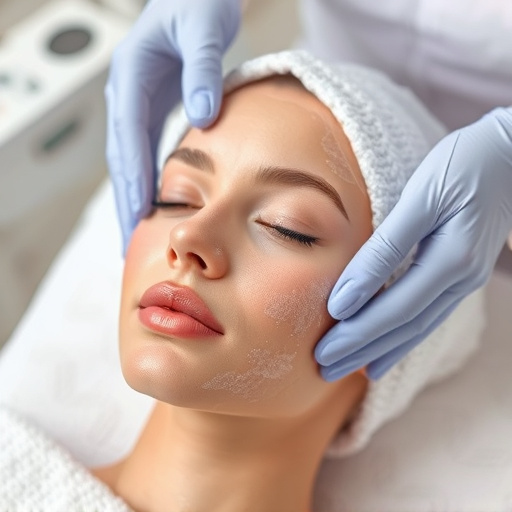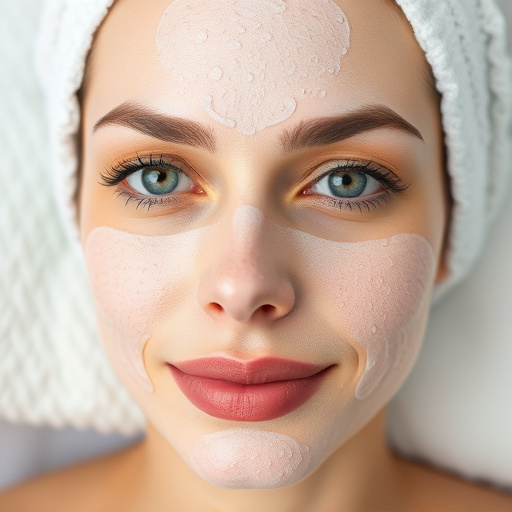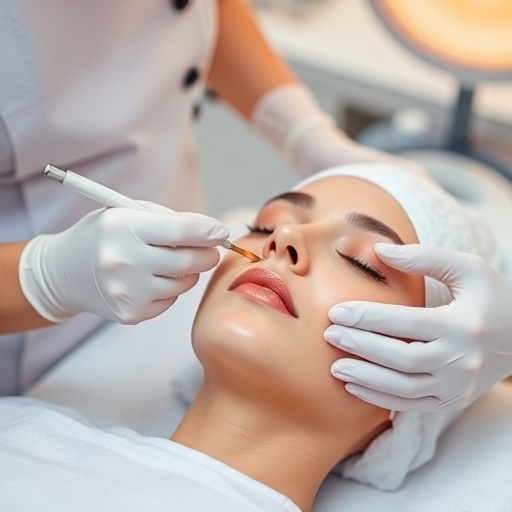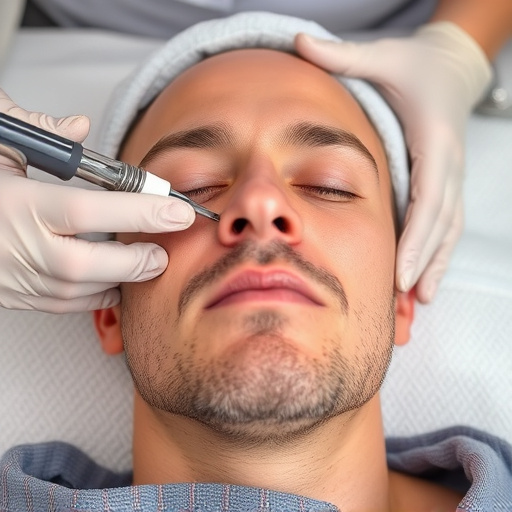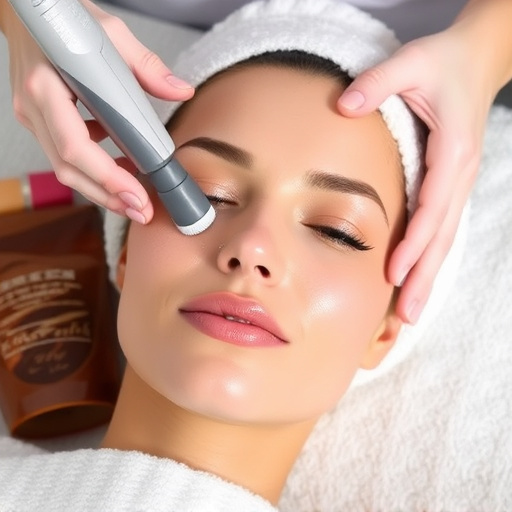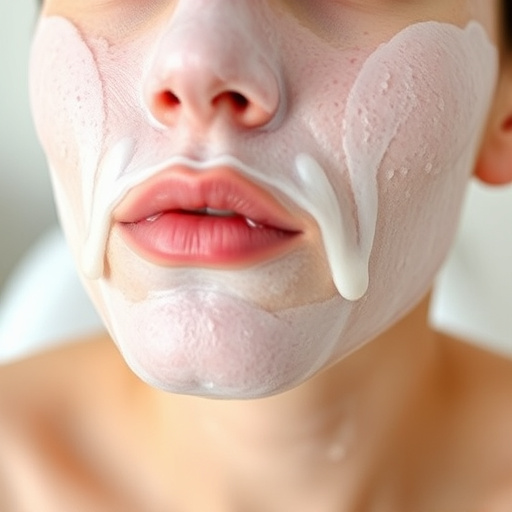Hormone levels significantly impact leg laser hair removal effectiveness. Estrogen and testosterone influence hair thickness and growth. Natural cycles like menstrual periods cause skin sensitivity fluctuations affecting treatment outcomes. Health conditions like PCOS or thyroid disorders disrupt hormone balance, potentially impacting non-surgical treatments. Managing these issues alongside professional regimens optimizes results in leg laser hair removal. Balanced hormones enhance pore refinement and skin rejuvenation.
Hormones, often overlooked, play a significant role in the effectiveness of leg laser hair removal. This article delves into how these chemical messengers can influence treatment outcomes, exploring the intricate relationship between hormone levels and laser technology. By understanding this connection, you can optimize your procedure, achieving smoother, longer-lasting results. We’ll guide you through balancing hormones for efficient leg laser hair removal, offering insights into a holistic approach to achieving silkier skin.
- Hormone Levels: The Unseen Factor in Hair Removal
- Understanding the Link Between Hormones and Laser Technology
- Optimizing Results: Balancing Hormones for Effective Leg Hair Removal
Hormone Levels: The Unseen Factor in Hair Removal

Hormone levels often play a significant but overlooked role in the effectiveness of leg laser hair removal procedures. These chemical messengers in our bodies can influence various aspects of our physical traits, including hair growth and distribution. For instance, higher hormone levels like estrogen and testosterone can stimulate hair follicles, leading to thicker and more persistent hair. This is why some individuals may find that their body’s natural hormonal cycles impact the results of laser hair removal treatments.
During certain phases of a woman’s menstrual cycle, for example, fluctuations in estrogen and progesterone can cause changes in skin sensitivity and hair growth, potentially affecting the procedure’s outcome. Similarly, conditions like polycystic ovary syndrome (PCOS) or thyroid disorders, which disrupt hormone balance, might also impact non-surgical treatments like facial treatments or anti-aging treatments, making it crucial to manage these health issues before or alongside any hair removal regimen.
Understanding the Link Between Hormones and Laser Technology

The relationship between hormones and laser hair removal is a fascinating aspect often overlooked in the beauty industry. Hormones play a significant role in regulating various bodily functions, including hair growth. Understanding this link is crucial when considering leg laser hair removal treatments. The skin’s response to laser technology is influenced by the body’s hormonal balance, which can impact the effectiveness of the procedure.
For instance, hormones like testosterone and estrogen can affect hair follicles’ activity and sensitivity. During certain phases of a woman’s menstrual cycle or hormonal changes due to conditions like polycystic ovary syndrome (PCOS), hair growth may increase in specific areas, making it more challenging to achieve desired results with laser treatments. Skilled professionals in the field of professional skincare often consider these factors to tailor laser therapies for optimal pore refinement and skin rejuvenation.
Optimizing Results: Balancing Hormones for Effective Leg Hair Removal

Optimizing results in leg laser hair removal is closely tied to maintaining a balanced hormonal profile. Hormones play a significant role in regulating hair growth and skin health, making them key factors for effective treatments. For instance, estrogen and testosterone fluctuations can impact the thickness and rate of hair regrowth after laser sessions.
To enhance the outcomes of leg laser hair removal, individuals should focus on achieving optimal skin health through professional skincare routines. This includes consistent cleansing, exfoliation, and hydration. Balancing hormones through a healthy lifestyle, diet, and stress management techniques can also contribute to better results. Additionally, incorporating hydrating facials into your skincare regimen can support the overall health of your skin, making it more receptive to laser treatments.
In conclusion, hormones play a significant role in the effectiveness of leg laser hair removal treatments. By understanding the connection between hormone levels and laser technology, individuals can optimize their results. Balancing hormones before and during the procedure can lead to smoother, longer-lasting outcomes. For those seeking long-term solutions to unwanted leg hair, considering hormonal factors is essential for achieving the best possible results in leg laser hair removal.

